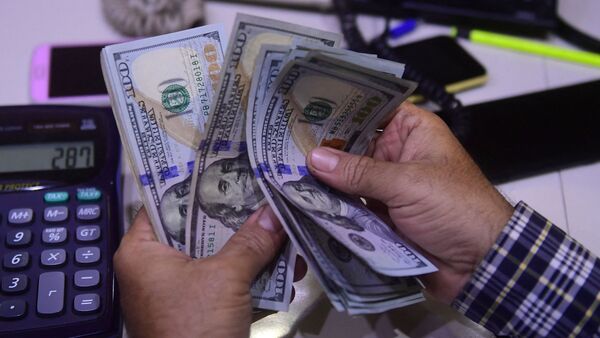The RBI’s liberalised remittance scheme (LRS) has been seeing a bit of a drama of late. First, the government announced that it was bringing credit card spending under the ambit of the LRS. It also imposed a 20% tax collected at source (TCS) on foreign currency payments made through credit cards.
A flurry of social media posts, some from the government’s most ardent and vocal fans, said this was a flawed move that would make foreign travel more expensive and increase working-capital needs despite the provision to claim refunds.
Infosys co-founder Mohandas Pai wrote in an opinion piece that “the TCS of 20% on credit card payments for overseas travel is an instance where citizens are put to greater discomfort, higher compliance costs and unnecessary harassment because the I-T department believes that it does not have the tool to find out if taxes are being evaded. The simple solution is that any citizen who has filed tax returns for three years and has a PAN card should not be subject to any kind of TCS. Also, there can be a TCS of say 2% to ensure traceability, but why 20%”.
Chief Economic Advisor V Anantha Nageshwaran responded to Pai in an op-ed, arguing that “TCS on credit cards was done to track foreign spending disproportionate to returned income. It was also expected that this would nudge people to come forward and file tax returns”.
Nevertheless, the government gave in to the public outcry and rolled back its decision. So, payments up to ₹7 lakh through international debit or credit cards will not attract TCS.
The decision to exclude international credit and debit card spending from the LRS is welcome, but the episode betrays the policymaker’s mindset. The government’s spokespersons continued to defend the move even after it was rolled back, saying TCS would create audit trails and would help detect under-reporting of incomes by rich individuals.
While this is true, the income tax department already has an underutilised mine of information from third parties such as banks, credit card companies and authorised forex dealers to spot potential tax evaders by examining their spending patterns. The tax department must diligently mine this information rather than saddle individuals with a TCS that would needlessly increase the compliance burden.
India is globalising rapidly, and holding back citizens whose lifestyles have changed from spending on things like foreign travel is just plain regressive even if Nageswaran refutes this.
Indian residents using the LRS – which allows an individual to freely remit up to $2,50,000 a year for any permissible current or capital-account transaction, or a combination of the two – do so after paying taxes. And the funds are routed through banks.
In 2019 the Supreme-Court-appointed special investigation team (SIT) on black money probed the possible misuse of the LRS to evade taxes. It wanted their returns of income to be scrutinised along with disclosures of gifts made under the scheme.
The fact is robust audit trails are already available for any transaction, given that it is mandatory for individuals to provide their Permanent Account Number (PAN) for all transactions under LRS. What has been missing is diligent scrutiny of these transactions by the income tax department.
The SIT reportedly believed that only part of the cost of properties bought in, say, the Gulf, was paid through the LRS, with the balance transferred illegally. But even those who attempt to take untaxed income outside India will run up against the automatic exchange of information agreements that India has with many countries. The SIT ought to have been aware of this even as it tried to establish contemporary relevance.
Perhaps the government factored in the SIT’s views before introducing TCS in the LRS in 2020. In the 2023-24 budget, the union government raised the TCS on LRS transfers from 5% to a steep 20%. Not surprisingly, a public backlash followed after it extended TCS to credit card spends on foreign trips from July 1.
Public memory is short. Audit trails on credit card spends have been available to tax authorities ever since the government introduced the annual information returns – now rechristened as the statement of financial transactions – that identify potential taxpayers by examining their expenditure patterns.
The income tax law requires credit card companies to report transactions by individuals of over ₹10 lakh a year. The tax department also secures information on those who pay credit card bills of over ₹1 lakh in cash. And if an individual’s cash settlements are disproportionate to their declared income, the IT department will seek an explanation.
A forex dealer is mandated to provide information to the tax department on expenses incurred by an individual in foreign currency through a debit or credit card or through the issue of draft or traveller’s cheque for an amount exceeding ₹10 lakh a year. Tax officers also have the power to seek information, be it from the airlines or from immigration authorities.
The only limit on how much information is collected is the department’s ability to use what is collected while safeguarding data against misuse. What’s required is an intelligent analysis of this data that uses technology to sniff out untaxed incomes.
Download The Mint News App to get Daily Market Updates.
More
Less
#Tax #authorities #dont #TCS #catch #evaders
